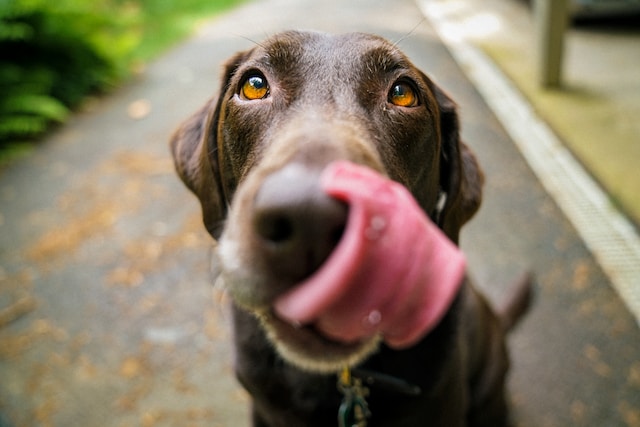Are Dogs’ Mouth Cleaner Than Humans? Debunking the Myth
As an avid dog lover and someone who deeply cares about oral health, I’ve often come across the age-old question: “Are dogs mouth cleaner than humans?” It’s a fascinating topic that has stirred up debates among pet owners, health enthusiasts, and curious minds alike. Let’s dive into this intriguing subject and separate fact from fiction.
Comparing Bacterial Populations
When it comes to bacteria, both dogs and humans harbor diverse microbial communities in their mouths. However, the composition of these bacteria can differ significantly between species. Dogs have unique enzymes in their saliva that aid in breaking down harmful substances, contributing to their relatively cleaner mouths. Nonetheless, humans have evolved to host bacteria that are more adapted to our oral environment.
Oral Hygiene in Dogs
Have you ever noticed how dogs are inclined to clean themselves, including licking their wounds? Dogs have their ways of maintaining oral hygiene, such as licking their paws and teeth. Although it helps, it’s not a foolproof method. Factors like diet, genetics, and dental care play crucial roles in their oral health.
Human Oral Hygiene
On the human side of the equation, oral hygiene is vital for overall well-being. Brushing, flossing, and regular dental check-ups are essential to prevent oral issues. Taking care of our teeth and gums can significantly impact our overall health, reducing the risk of various diseases.
Saliva: Friend or Foe?
Saliva is an integral part of both dogs’ and humans’ oral ecosystems. Dogs’ saliva contains enzymes that aid in breaking down bacteria, while human saliva contains antibodies to combat infections. Each type of saliva serves its purpose, making it challenging to declare one cleaner than the other.
Dietary Impact on Oral Health
A balanced diet is essential for maintaining oral health in both dogs and humans. For dogs, raw food diets can sometimes lead to dental problems, while kibble may contribute to plaque buildup. Likewise, humans’ high-sugar diets can promote cavities and gum disease.
Dental Anatomy and Its Influence
The structure of teeth and jaws varies between dogs and humans, reflecting their dietary habits and evolutionary adaptations. While dogs’ teeth are designed for tearing and crushing, humans’ teeth are more suited for grinding. Understanding these differences helps us appreciate the uniqueness of each species.
Disease Transmission
The concern of disease transmission between dogs and humans through saliva is legitimate but relatively rare. By practicing good hygiene and keeping both our dogs and ourselves healthy, we can minimize any potential risks.
The Human-Canine Bond
Allowing dogs to lick our faces is a display of affection for many pet owners. This act releases oxytocin, the “love hormone,” promoting feelings of happiness and trust. However, it’s essential to consider potential risks, especially for those with compromised immune systems.
Maintaining Cleanliness
To ensure our canine companions have the cleanest mouths possible, regular dental check-ups and teeth cleaning by a veterinarian are crucial. Additionally, we must be mindful of their dental health when choosing treats and toys.
For humans, maintaining oral hygiene through regular brushing, flossing, and dental visits is essential. These practices help prevent gum disease, cavities, and other oral issues.
The Power of Preventive Care
Preventive care is the key to both dogs’ and humans’ oral health. Regular dental check-ups and cleanings help catch any issues early and keep our mouths in top shape.
Addressing Common Myths
As with many topics, several myths surround the cleanliness of dogs’ mouths. By relying on scientific evidence and expert opinions, we can debunk these myths and base our conclusions on facts.
Precautions for Vulnerable Individuals
While dogs’ mouths are not necessarily “cleaner” than humans, it’s essential to take precautions, especially for vulnerable individuals like children, the elderly, and those with weakened immune systems. Supervised interactions with dogs and good hygiene practices are crucial for their safety.
So, Are Dogs Mouth Cleaner than Humans?: Final Verdict
After exploring the evidence and considering various factors, it’s challenging to definitively declare one species’ mouth cleaner than the other. Both dogs and humans have unique ways of maintaining oral health, and it ultimately comes down to individual circumstances.
Conclusion: Are dogs mouth cleaner than humans?
So that’s it. Whether you have a furry companion or not, oral hygiene is a critical aspect of overall health. Regular care, dental check-ups, and maintaining a balanced diet contribute to healthy mouths for both dogs and humans. Remember, a healthy mouth means a happier life for everyone involved.
FAQs: Are dogs mouth cleaner than humans?
Is it safe to let my dog lick my face?
While it may be a display of affection, it’s essential to consider potential risks, especially for those with compromised immune systems. Limit face licking and ensure your dog has good oral health.
Are raw food diets suitable for dogs’ oral health?
Raw food diets can contribute to dental problems in dogs. Consult your veterinarian to determine the best dietary plan for your furry friend.
How often should I take my dog for a dental check-up?
Regular dental check-ups are crucial. Consult your veterinarian for a recommended schedule based on your dog’s needs.
Can dental issues in dogs affect their overall health?
Yes, dental problems in dogs can impact their overall health. Untreated dental issues can lead to pain, infections, and even affect other organs.
Are there any natural ways to keep my dog’s mouth clean?
While some natural methods may help, such as certain chew toys, nothing replaces regular dental check-ups and professional cleanings by a veterinarian.
Remember, the information provided here is for educational purposes and should not replace professional advice from veterinarians or dental health professionals.




